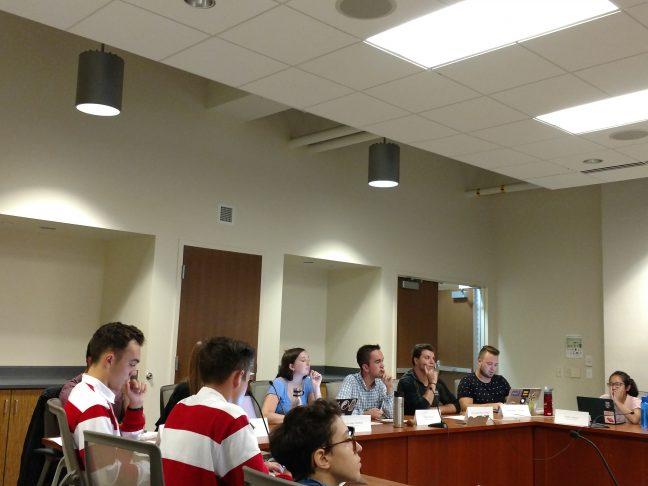The Associated Students of Madison heard a presentation from the Rape Crisis Center Wednesday night and voted to approve new legislation against workplace harassment to support Electrical and Computer Engineering graduate students.
Student council approved a new resolution in support of ECE graduate students seeking a safe and harassment-free work environment. This legislation is in response to UW reinstating professor Akbar Sayeed after a two-year suspension.
Sayeed was accused of creating a toxic work environment, harassing graduate students in the lab and contributing to the suicide of one graduate student.
Chair of the Grant Allocation Committee Christopher Bosma sponsored the bill and talked about its importance.
“The big issue is that the University needs to respond to [workplace harassment] and have a policy in place when grad students have an adviser that is abusive,” Bosma said. “This one instance has been in the news, but it is not limited to one person at one time. It’s actually a bad systemic problem.”
The legislation passed with a vote of 13-0-2.
The executive director of the Rape Crisis Center Erin Thornley Parisi spoke to the council about the center’s partnership with the University of Wisconsin. Parisi said UW represents 9% of the total grants the organization receives and 7% of the RCC’s overall budget.
“People tend to think of the Rape Crisis Center as being very prescriptive and that we only serve people who have been raped,” Parisi said. “But, the ‘Center’ is the most important part of our name. We really are here to serve anybody in the community who has been sexually violated in their lives at any time.”
Parisi also talked about changes RCC has made to improve diversity and accessibility. Parisi said the RCC board of directors used to be 100% white, but people of color now comprise 43% of it. Additionally, about 13% of the board identifies as LGBTQ+.
The RCC also introduced a new delivery model called Human Centered Engagement. Parisi said this model for providing care aims to build up strengths in survivors and give them the choice on how they want to incorporate sexual assault into their life.
“They can be a victim the rest of their life [or] they can be a survivor,” Parisi said. “They can choose to never think about it again. They can choose to talk about it everyday. It’s all OK. What we want to do is help them incorporate that in an appropriate way.”
The next ASM student council meeting will be on Dec. 4 at 6:30 p.m. in the Student Activities Center.


